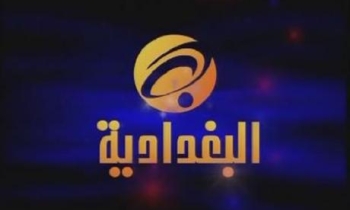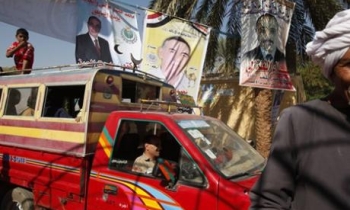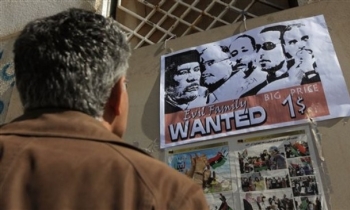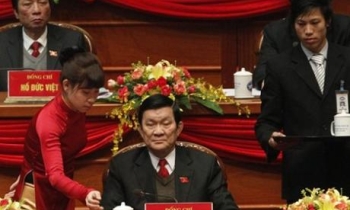Free expression groups worldwide have joined Afghan journalists in demanding the release of the independent journalist and translator who was kidnapped by the Taliban at the same time as a now-freed Italian journalist.
La Repubblica reporter Daniele Mastrogiacomo, his driver, Syed Agha, and his translator, Ajmal Naqshbandi, who is also a journalist, were kidnapped on March 5 by the Taliban in Helmand province. Mastrogiacomo was released on March 19 in exchange for five Taliban prisoners. Agha was beheaded a few days after they were abducted, and Naqshbandi is still being held.
According to Reporters sans Frontières (RSF), around 100 relatives and friends of Agha demonstrated outside a hospital in the capital of Helmand, where Mastrogiacomo was staying. They accused the Afghan government of ignoring the Afghan media workers who were also kidnapped. “President Karzai spoke about the Italian yesterday (March 19) but said nothing about the Afghan driver,” an uncle of Agha said. “No one tried to get him released.” The Taliban have also refused to release Agha?s body.
On the same day, Afghan journalists’ organisations demonstrated outside the Information Ministry in Kabul to demand Naqshbandi’s release. Naqshbandi worked as a translator and guide for visiting La Repubblica journalists for nearly four years, and was a journalist in his own right. The Pajhwok Afghan News agency reported the Taliban were still holding him because they wanted more of their men freed.

RSF and the Committee to Protect Journalists (CPJ) have joined Afghan journalists’ organisations in condemning the way Mastrogiacomo was released and the consequences it could have for journalists in Afghanistan. Rahimullah Samander, the head of the Afghan Independent Journalists Association, told Agence France-Presse (AFP): “We fear that journalists will increasingly become targets for the Taliban and al-Qaeda.”
CPJ is asking journalists and media organisations to fax or call Afghan diplomatic missions in their country and demand Naqshbandi’s release. “ Ajmal’s case has been overshadowed by the controversial conditions under which Daniele Mastrogiacomo was released. But we cannot let that get in the way of pressing the government of President Hamid Karzai to do what it can to secure Ajmal’s release. We are not asking the government to trade prisoners or money for Ajmal, only that it continue to press for his release and not let his abduction fade from public consciousness. Afghan journalists are already applying that pressure; adding international voices to that call will help our colleagues there.,” CPJ appealed.
“There is no justification for continuing to hold Naqshbandi or for refusing to return Agha’s body,” RSF said. “It is clear the Taliban have already obtained a great deal in this tragic affaire. Mullah Dadullah’s attitude and his threat to kidnap other journalists run counter to the undertakings given by other Taliban leaders towards the press. We condemn Dadullah’s behaviour and statements, which pose a serious threat to Afghan and foreign journalists working in the south of the country.”
A journalist aged 25, Naqshbandi has reportedly been held by Dadullah’s men ever since Mastrogiacomo, Agha and he were taken prisoner. Dadullah himself told Pakistani journalist Rahimullah Yousafzai that Naqshbandi was still being held, adding that “the Karzai government was only interested in the Italian.” His father, Ghulam Haidar, said: “It is not fair. They freed five Taliban to get the Italian released, but they will not free a single Taliban to get my son released.”

According to some accounts, however, the Afghan security forces could now be holding Naqshbandi and Rahmatullah Hanefi, manager of Emergency hospital. Mastrogiacomo said he thought Naqshbandi was released at the same time as he was, but was placed in a different vehicle. A Taliban chief also told an Afghan journalist that, if he wanted news of Naqshbandi, he should ask the government in Kabul.
On March 23, Mastrogiacomo and the editor of La Repubblica appealed for the release of Naqshbandi. The Italian journalists’ organisation Fourth Power also issued a call for his release March 25. In Kabul, one of his brothers appealed for his release, saying the only news he had received of him was a video message dated March 12 in which he said he was well and had been arrested for “entering a Taliban region without permission.”
Mullah Dadullah’s men have meanwhile demanded the release of a Taliban chief, Mulluh Janaan, in exchange for the body of Agha, Mastrogiacomo’s driver. Members of Agha’s family went to Garmseer, a village in Helmand province, to recover his body, and were stopped and turned back by Taliban. Aged 25, Agha often worked as a driver and fixer for foreign journalists in Helmand province.
The resentment is palpable.
"The silence of the Rome government on the fate of Naqshbandi is nothing short of shameful,” Zia Boumia of the Committee for the Defence of Afghan Journalists told Adnkronos International (AKI). “Once Mastrogiacomo was freed the Italians vanished,” Boumia said. “We wonder why no one, the Italians, the international community or even the Afghan government is lifting a finger for our colleague.”
Monir, Naqshbandi’s brother, told the dari language service of BBC, “We do not understand the complete lack of interest of the Rome government regarding my brother’s fate. As long as the journalist of Repubblica was detained, we were contacted several times a day by officials of the Italian embassy in Kabul, but once he was freed, they disappeared.”









